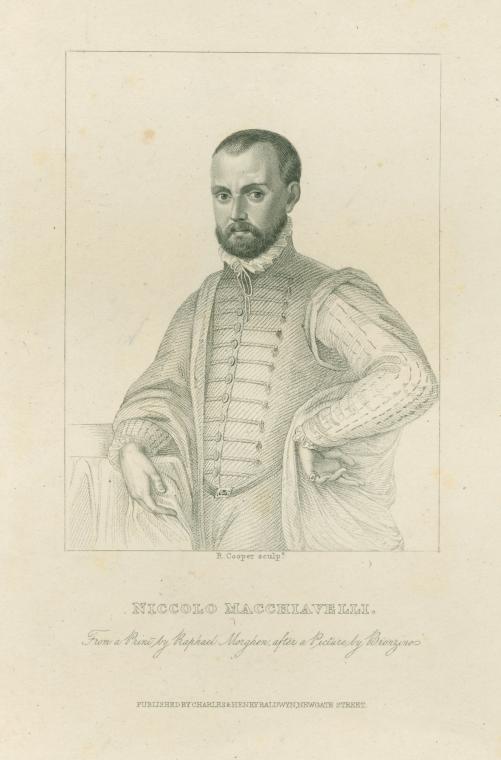Liberty Matters
Machiavellian Definitions of Liberty

“Out of his surname they have coined an epithet for a knave, and out of his Christian name a synonym for the Devil.” Macaulay’s description of Machiavelli was witty but not unusual in 1825. But, as Ted Harpham notes in his essay, in the last half-century political philosophers have excavated the ruins and found a deeper Machiavelli, one more friendly to liberty than Macaulay’s knavish devil.
As the essays in this symposium have made marvelously clear, the underlying question is what is meant by the term “liberty.” Over the course of these four essays, there is an explosion of definitions of “liberty,” which would have pleased Machiavelli immensely. After all, with so many definitions on the table, surely at least one of them will fit the needs of the moment.
Elizabeth Hull zeros in on the definition of liberty that best exemplifies the point: “Liberty is an Unconquered Country.” As all three of my conversation partners correctly point out, Machiavelli gives much advice to rulers on how both to free a country from oppressors and to maintain it as a free country once so liberated. For the Prince or the Ruler of a Republic, this is indeed a type of liberty; having no other power above him, the ruler is free to do as he likes. Machiavelli stands at his shoulder helping him figure out how to maintain this freedom. If we think about this type of liberty, then Machiavelli is indeed a good friend to liberty, perhaps the best friend ever.
Note, however, what an odd notion of liberty this is. In a given society, who exactly is free? Every single person who is subordinate to the ruler lacks the liberty enjoyed by the ruler. The leader of a town does not have the same liberty as the leader of the country in which the town is located. Consider: if the city of Florence is in the region of Tuscany which is in the country of Italy, only one of those three places can have a leader who is free in this sense of liberty. Everyone else is in the position of a person living in a conquered territory.
It is important to remember that it was to these wannabe leaders of Florence or Tuscany or Italy that Machiavelli was writing. These prospective rulers did not have a Leo Strauss mining the depths to tell them what Machiavelli really meant. Instead, Machiavelli’s books were ready-made manuals for how to seize and maintain power. For centuries that is what everyone knew these books to be.
All of this raises a familiar question in reverse. If the ends to which Machiavelli’s writings have been put are not good, then do the ends condemn the means? Not necessarily. If your country was being oppressed by cruel leaders or was threatened by an evil foreign power, you might well wish to be ruled by slightly less cruel and evil devotees of Machiavelli. But we should not confuse the potential usefulness of such leaders in times of stress with the idea that such leaders will bring, or are even likely to bring, liberty to a country once the source of stress has been removed.
Copyright and Fair Use Statement
“Liberty Matters” is the copyright of Liberty Fund, Inc. This material is put on line to further the educational goals of Liberty Fund, Inc. These essays and responses may be quoted and otherwise used under “fair use” provisions for educational and academic purposes. To reprint these essays in course booklets requires the prior permission of Liberty Fund, Inc. Please contact oll@libertyfund.org if you have any questions.